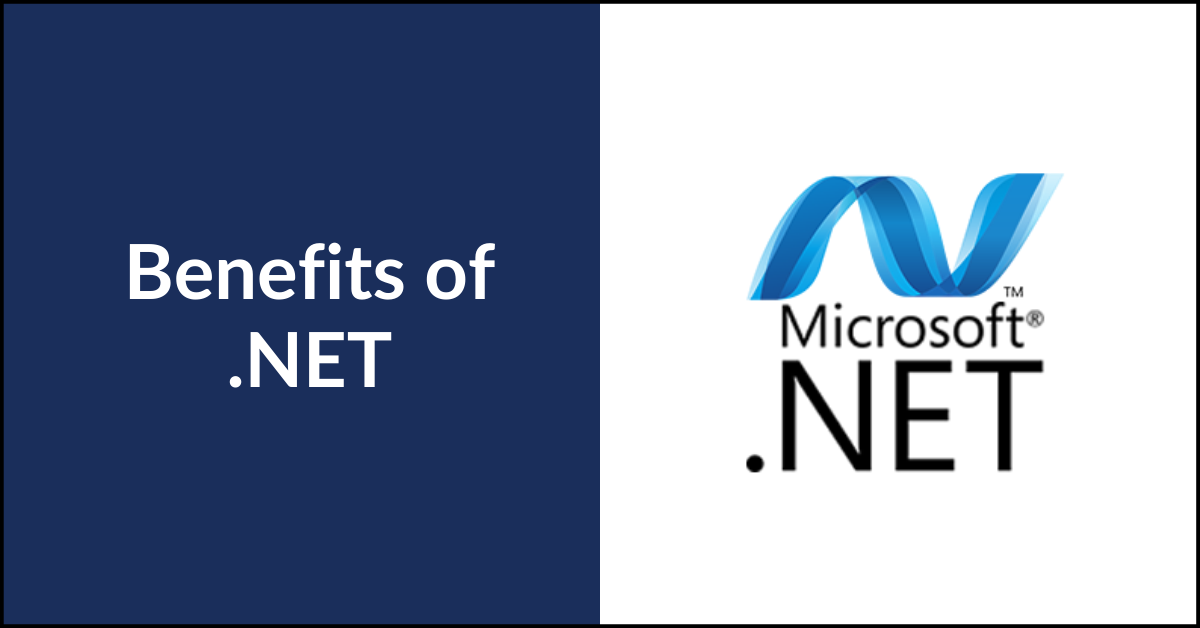
There are a lot of frameworks and languages to choose from when it comes to custom software development. At Far Reach, we have experience in several of them, but our most used has stood the test of time: Microsoft .NET.
In many cases, it’s a great option for enterprise software.
Keep reading to learn what it is and why we like it.
What Is .NET?
.NET is an open-source development platform that hosts libraries and tools to help you build any kind of app, from mobile and web apps to gaming, microservices, and IoT apps. The application environment supports 60 programming languages, which inherently
means great flexibility.
This is one of the reasons why the .NET framework and its successor, .NET Core, are two of the three most used frameworks globally, with market shares
of over 34% and 31%, respectively.
A market share that big shows that .NET is generally suitable for building highly scalable apps for both startups and large enterprises.
If your organization uses other tools from Microsoft (e.g., Azure cloud hosting, Office 365, Windows OS, and more), it may make sense for you to take advantage of the built-in tools and custom integrations between the .NET framework and those applications.
Even if you haven’t settled on .NET and are just doing research, we can help. We recommend clients use the best framework for their specific software strategy—we’re not pigeonholed. We can talk through your requirements and help you choose the best
solution for your business. Reach out!
5 Reasons to Consider .NET for Custom Software Development
Now that we’ve covered the basics, let’s dig into the benefits of .NET. After decades of using it for software projects, this is what we’ve learned:
1. A Highly Secure Environment
Cybersecurity has become a top concern for everyone, and especially for our clients in highly-sensitive fields, like healthcare or financial services. We know that proper security starts at the very beginning of the development cycle.
It’s difficult to have a secure custom software application if the development environment you’re using doesn’t include the tools to help make that happen.
With .NET, we can easily implement role-based security, threat monitoring, and many other ways to secure your application.
2. .NET Is Developer Friendly
With such a high market share, .NET has a lot of resources supporting it. From education and certifications to open-source add-ons and developer support, you’re never alone in the .NET world.
Microsoft is committed to offering a platform that’s good for enterprises and great for developers. That means there’s a wide network of .NET developers of every level, which makes finding support for your application easier.
3. .NET Works Outside of Microsoft
While most people associate it with Microsoft, .NET is a cross-platform framework. You can create applications that are compatible with Microsoft products as well as ones that run on iOS, Linux, Android, and more. Out of the 60 languages you can use
within the .NET platform, only 11 are created by Microsoft. We often bring in JavaScript, JQuery, Angular, HTML5, CSS3, and more—whatever the project requires.
In the Visual Studio development environment, we can use .NET to build cross-platform applications, which allows us to reuse a single codebase across many different variations
of an application. For instance, when we build a custom software system that has iOS, Android, and web versions, we can optimize time and resources by using code we develop across all those platforms.
4. Scalability
As your business grows and changes, your software needs to do so as well. .NET is completely scalable, allowing for growth in user base, functionality, data consumption, and more.
You can also gain economies of scale throughout an application. With .NET, you can create blueprints, which allow developers to reuse some objects in different software projects. You can change code in one area of your application without affecting
others. When it’s time to grow, you can add new modules, update others, and take advantage of work that’s already completed, tested, and out in the users’ hands.
5. Make Maintenance a Breeze
When you need to update individual components of your system or if it’s time to upgrade to the latest .NET release, .NET tools allow for a seamless process. You can run updates, do regression testing, and push a new version live so your users
always have the best experience.
With Application Insights, you can automatically watch for and identify errors, security threats, performance issues, anomalies, and more allowing you to act fast and keep your
system updated to extend its life cycle.
Need to Modernize?
Learn why .NET is great for modernizing legacy software systems—no matter what framework they’re currently in.
The Not-So-Good Side of .NET
As with any development framework, there are some less pleasant aspects to .NET. For instance, even if the platform itself is open source and free, some licenses, like Visual Studio, can have hefty price tags.
More importantly, remember that this is a Microsoft-developed and led platform. If and when Microsoft decides to make big changes to it or stop releasing security patches, you have no say. You will have to find a new solution to keep your applications
afloat.
However, .NET has been around for decades, has solid market share, and makes Microsoft a pretty penny, so there’s no reason to think it will disappear any time soon.
Want to talk more about whether .NET is the right framework for you or not? At Far Reach, we’re platform-agnostic, so we’re happy to offer unbiased advice. Get in touch!